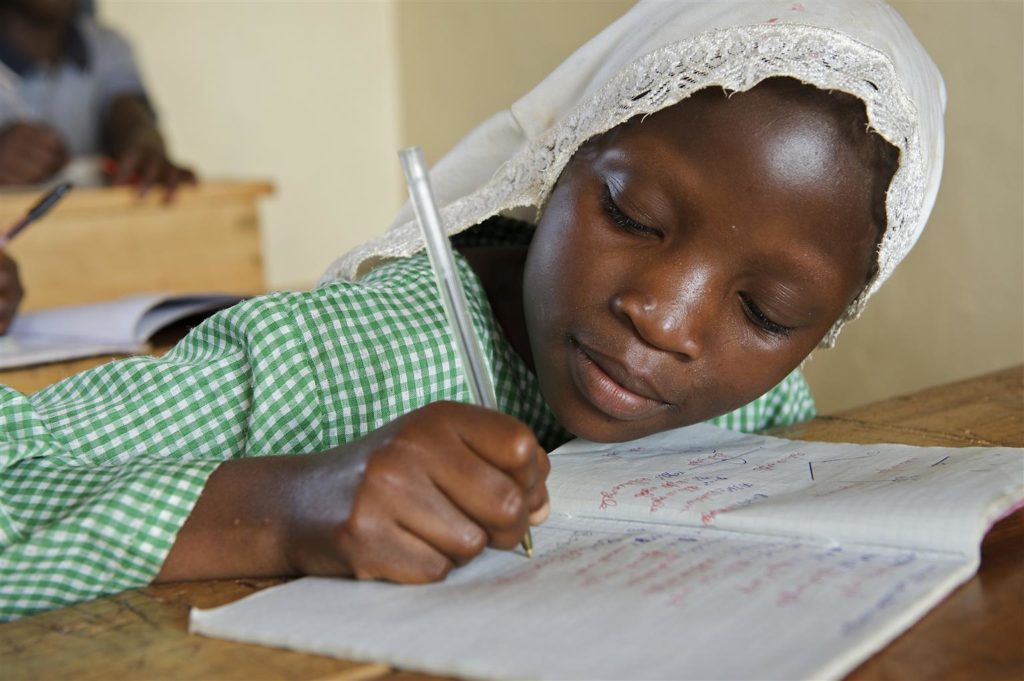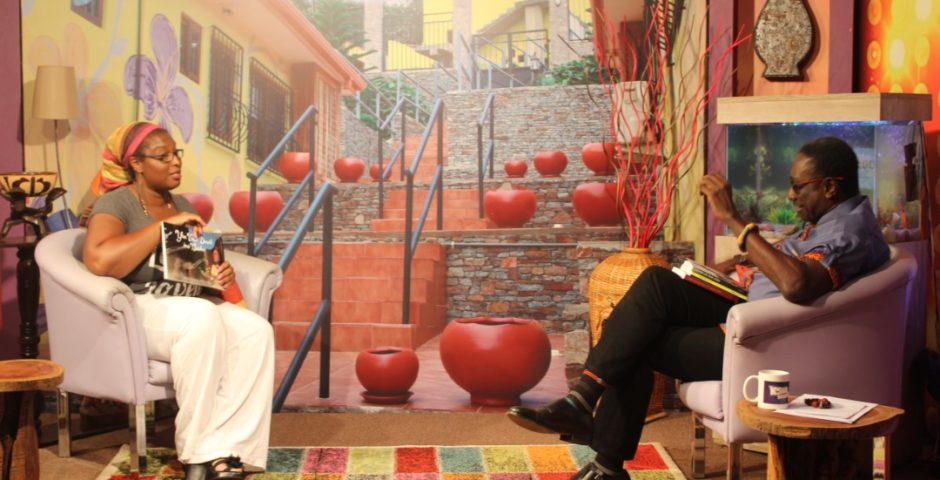Lecherous Lecturers: Preparing Your Student For the Lion’s Den
It’s not the kind of message I was expecting to receive to early in the morning, particularly not from the individual in question. He is a casual (and one of my more pleasant) acquaintances on social media. Our conversation has run the gamut from history, to music, to women’s issues…but never this.
“A friend of mine was sexually harassed by a lecturer at Legon and didn’t know who to speak to and she spoke to me. She wants to be discreet about it…”

Sexual assault on campuses is a global problem.
My heart immediately broke for this unknown girl. Her distress is not unfamiliar to me. Although I have never suffered the lamentable circumstance of being assaulted by my instructor(s), I know many women and girls who have. We were in grade 6 when the English teacher at my elementary school, Soul Clinic, closed all the windows and doors and shut my classmate in the room with him during break time, forbidding us from coming in during that half hour with a strict warning. I still remember how stricken with grief she looked when she finally emerged from captivity. She never was quite the same after that.
A new school year already well underway, and most of us who find ourselves in the noble position of parent/guardian have parted with our hard earned money to purchase books and supplies for our charges, further equipping them with the same advice that was handed down to us during our formative years.
“Focus on your books.”
“Don’t have too many friends, and make sure to pick the right ones.”
“Don’t eat everything in your chop box the first week. You don’t know when we will visit again!”
For all of our preparation, some of us will be marching our children and wards right into the waiting arms of sexual predators – men and women of depraved minds who will fondle, slobber and lash them with all gladness. It is afterward that the victim will have to make the impossible choice of speaking up and reporting a teacher with tenure or maintaining silence in hopes of passing their course. Either way, the child’s life is forever marked by the event. How can you prepare your child to face something like that when many of us don’t even entertain the occurrence as a possibility? Things like this don’t happen in our communities – good communities. They certainly wouldn’t happen to your well-raised child at a school as reputable as Legon.
And yet.
There is an almost willful ignorance about sexual the levels of sexual, verbal and physical abuse that pockmark our educational landscape. The façade of peace and perfection is more important than its pursuit, explaining why so woeful little has been done to protect students who have their education held for ransom by teachers and professors who feel entitled to their bodies. As a nation, we’ve been indoctrinated with this belief: You cannot challenge authority and hope to get any redress. Even though I felt a duty to try to help this young woman with any information I could find, I felt defeated from the onset. One after another, the responses to my query were met with scoffs, confirming that instinct.
“Here, in Ghana? Please.”
“You are lucky if you graduate from a Ghanaian institution without suffering some form of harassment or assault. Even the boys aren’t spared.”
“You can report it if you like, but the administration will always take the side of faculty.”
“My professor offered me a lift back to campus, drove me to a remote corner, pulled out his penis and demanded I give him a blow job. I screamed and insulted him, which caught him off guard. When I reported it to the head of the department, I was advised to let it go because, ‘My insult seemed to scare him enough’.”
Everyone was apologetic, but the fact was that this young woman would have to take her lumps with the rest of the culture. Could it be that this was really the case? Could it be that in 2017 – the year of the super computer and concept self-driving cars and all the other shiny technological advancements that we on the Continent have embraced – that there are no mechanisms for students to report improprieties meted against them?
My stubbornness wouldn’t allow me to believe it. Fate, who disguised herself as Dr. Akyana Britwum, rewarded my pigheadedness with an introduction to his mother, Dr. Akua Opokua Britwum, Professor at the University of Cape Coast. Her research and publications cover sexual harassment, the economics of violence against women, gender mainstreaming in Ghanaian Universities, gender and land rights, gender and leadership in trade unions, organizing informal economy workers as well as trade union participation and representation.

Dr. Akua Britwum. Source: UCC
We spoke briefly about the incident that was brought to my attention. This is a condensed version of our conversation:
“ Sexual harassment from unwanted contact through assault and rape is prevalent in our educational institutions in Ghana. The experience is widespread; deriving from our (mis)understanding of sexual harassment; for a number unwanted touching patting no the backside, sexual jokes, exposure to pornography are just jokes any not harassment.
Some universities cover sexual harassment during orientation for freshers; but our experience at University of Cape Coast (UCC) shows that the space is small and students hardly hear or able to understand fully what has been said. We are therefore working towards providing a dedicated space of about 2 hours for training on healthy sexual relations for students. It’s a system that was piloted this year.
A number of facilities (to report abuse) are available at various levels. In our basic schools Girls Education Unit’s school-based facilitators and guidance and counseling coordinators (GCC). All second cycle schools have GCCs. The question is how effective such systems are for dealing with sexual abuse and harassment. The officers’ lack the needed training and gender political skills to deal with the issues that come before them. However as you guessed rightly, funding and staffing remain real challenges.
Victim blaming/slut shaming is a big challenge especially around what is called ‘provocative/decent dressing’. And you find ‘prominent persons’ and politicians pandering to this discourse. Some men even claim to harass women because they have been ‘harassed’ by the way they dress. But women cannot lay claim to same; that they have been harassed by men’s dressing so they harassed the men in retaliation. So, a girl gets raped and she is blamed for being in the wrong place with the wrong persons, in the wrong dress. She should have known better; if she decided to spend time in bad boys’ company then she deserves the rape they met out to her. She is in short, a deserving victim.
The boys or men are absolved of any responsibility whatsoever for their criminal actions. Worst of all they do not carry any stigma for having raped a girl. She is the one whose dignity is soiled for ever. The situation gets more complicated if the harasser has some level of social standing. The poor girls are made to feel guilty for bringing harm to such men and their dependents. The choice that is forced on them; either they choose to live with their sense of defilement, loss of dignity. Or report and carry a burden of guilt for making their harassers suffer the consequences of their actions: Jobs loss, jail term, etc.
In fact, we find slut shaming or victim blaming is one reason why most girls will not seek redress in situations where they have been assaulted or harassed. Worst of all some even believe they asked for it.
And among those who do find the courage to report, a number just drop the case. They come under such intense pressure that few have the courage to pursue their case to conclusion.
As a caring society and ordinary citizens there’s a lot we can do:
We have to begin by reconstructing masculinities in Ghana:
Let’s teach young men that:
- They are responsible for their actions
- Just as they can control all other actions they have full power to control they sexual desires;
- That it is stigma to be a rapist
- Rape or sexual assault survivors are not morally weak;
- Women should be assertive and not a threat to men.
Let us teach young women that:
- No man has a right to her body;
- They have a right to say no to sexual advances no matter who it making the ventures;
- They can withdraw their consent to sex any time they feel it is not right;
- Single women who have never married are not failures
Every one should:
- Stop blaming the way girls dress as a cause of sexual harassment;
- Support girls who are harassed to seek redress;
- Criminalize men who sexually harass no matter their social standing.
She left off with this bit of encouragement:
Be heartened that now something happens and those assaulted or harassed can seek and obtain redress on university campuses in Ghana. In fact, everyone going through harassment should see it as their duty to report and ensure they follow through the process for redress.

Image Source: Unicef
We teach our kids to call 911/999 in the case of an emergency. We tell them to stop drop and roll if they are ever caught on fire. We better prepare young girls/women for every other eventuality than the ones they will most likely face: street, workplace or classroom harassment. As we’ve just celebrated the International Day of the Girl, let’s rejoice in how far women’s rights have come, but be realistic about how much further we have to go. Arm your girl(s) with the right information. If you are in Ghana and have been the victim of harassment or assault on campus, contact CEGANSA at 0246219788 and speak with an activist/counselor.
If you live outside of Ghana, I implore you to look up resources in your community as well. Let’s work to make classroom and workplace sexual assault a thing of the past.




